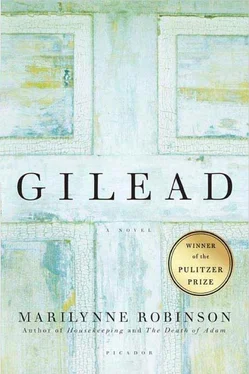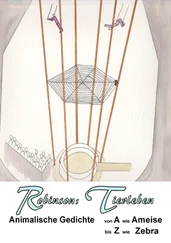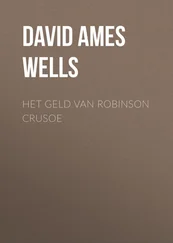***
It has seemed to me sometimes as though the Lord breathes on this poor gray ember of Creation and it turns to radiance — for a moment or a year or the span of a life. And then it sinks back into itself again, and to look at it no one would know it had anything to do with fire, or light. That is what I said in the Pentecost sermon. I have reflected on that sermon, and there is some truth in it. But the Lord is more constant and far more extravagant than it seems to imply. Wherever you turn your eyes the world can shine like transfiguration. You don’t have to bring a thing to it except a little willingness to see. Only, who could have the courage to see it?
I’ll just ask your mother to have those old sermons of mine burned. The deacons could arrange it. There are enough to make a good fire. I’m thinking here of hot dogs and marshmallows, something to celebrate the first snow. Of course she can set by any of them she might want to keep, but I don’t want her to waste much effort on them. They mattered or they didn’t and that’s the end of it.
There are two occasions when the sacred beauty of Creation becomes dazzlingly apparent, and they occur together. One is when we feel our mortal insufficiency to the world, and the other is when we feel the world’s mortal insufficiency to us. Augustine says the Lord loves each of us as an only child, and that has to be true. “He will wipe the tears from all faces.” It takes nothing from the loveliness of the verse to say that is exactly what will be required.
Theologians talk about a prevenient grace that precedes grace itself and allows us to accept it. I think there must also be a prevenient courage that allows us to be brave — that is, to acknowledge that there is more beauty than our eyes can bear, that precious things have been put into our hands and to do nothing to honor them is to do great harm. And therefore, this courage allows us, as the old men said, to make ourselves useful. It allows us to be generous, which is another way of saying exactly the same thing. But that is the pulpit speaking. What have I to leave you but the ruins of old courage, and the lore of old gallantry and hope? Well, as I have said, it is all an ember now, and the good Lord will surely someday breathe it into flame again.
***
I love the prairie! So often I have seen the dawn come and the light flood over the land and everything turn radiant at once, that word “good” so profoundly affirmed in my soul that I am amazed I should be allowed to witness such a thing. There may have been a more wonderful first moment “when the morning stars sang together and all the sons of God shouted for joy,” but for all I know to the contrary, they still do sing and shout, and they certainly might well. Here on the prairie there is nothing to distract attention from the evening and the morning, nothing on the horizon to abbreviate or to delay. Mountains would seem an impertinence from that point of view.
To me it seems rather Christlike to be as unadorned as this place is, as little regarded. I can’t help imagining that you will leave sooner or later, and it’s fine if you have done that, or you mean to do it. This whole town does look like whatever hope becomes after it begins to weary a little, then weary a little more. But hope deferred is still hope. I love this town. I think sometimes of going into the ground here as a last wild gesture of love — I too will smolder away the time until the great and general incandescence.
I’ll pray that you grow up a brave man in a brave country. I will pray you find a way to be useful.
I’ll pray, and then I’ll sleep.
GROUP DISCUSSION STARTERS
What was your perception of the narrator in the opening paragraphs? In what ways did your understanding of him change throughout the novel? Did John’s own perception of his life seem to evolve as well?
Biblical references to Gilead (a region near the Jordan River) describe its plants as having healing properties. The African American spiritual, “There is a Balm in Gilead” equates Jesus with this balm. According to some sources, the Hebrew origin of the word simply means "rocky area." Do these facts make Gilead an ironic or symbolically accurate title for the novel?
The vision experienced by John's grandfather is a reminder that the Christ he loves identifies utterly with the oppressed and afflicted, whom he must therefore help to free. He is given his mission, like a biblical prophet. This kind of vision was reported by many abolitionists, and they acted upon it as he did. What guides John in discerning his own mission?
How does John seem to feel about his brother's atheism in retrospect? What accounts for Edward's departure from the church? What enabled John to retain his faith?
The rituals of communion and baptism provide many significant images throughout the novel. What varied meanings do John and his parishioners ascribe to them? What makes him courageous enough to see the sacred in every aspect of life?
One of the most complex questions for John to address is the notion of salvation — how it is defined, and how (or whether) God determines who receives it. How do the novel's characters convey assorted possibilities about this topic? What answers would you have given to the questions John faces regarding the fate of souls and the nature of pain in the world?
Marilynne Robinson included several quotations from Scripture and hymns; John expresses particular admiration for Isaac Watts, an eighteenth-century English minister whose hymns were widely adopted by various Protestant denominations. Do you believe that certain texts are divinely inspired? What is the role of metaphor in communicating about spiritual matters?
Discuss the literary devices used in this novel, such as its epistolary format, John's finely honed voice, and the absence of conventional chapter breaks (save for a long pause before Jack's marriage is revealed). How would you characterize Gilead's narrative structure?
What commentary does John offer about the differences between his two wives? Do you agree with Jack when he calls John's marriage unconventional? John describes numerous denominations in his community, including Lutherans, Presbyterians, Methodists, Quakers, and Congregationalists. What can you infer from the presence of such variety? Or does the prevalence of Protestants mean that there is little religious variety in Gilead?
What might John think of current religious controversies in America? In what ways are his worries and joys relevant to twenty-first-century life?
John grapples mightily with his distrust of Jack. Do you believe John writes honestly about the nature of that distrust? What issues contribute to these struggles with his namesake?
Discuss the author's choice of setting for Gilead. Is there a difference between the way religion manifests itself in small towns versus urban locales? What did you discover about the history of Iowa's rural communities and about the strain of radicalism in Midwestern history? Did it surprise you? Abolition drew John's grandfather to the Midwest, and the novel concludes at the dawn of the civil rights movement. In what ways does this evolution of race relations mirror the changes John has witnessed in society as a whole?
Is Gilead a microcosm for American society in general?
In his closing lines, John offers a sort of benediction to his son, praying that he will "grow up a brave man in a brave country" and "find a way to be useful." Do you predict a future in which his hope came true? What do you imagine John experiences in his final sleep?
Robinson's beloved debut novel, Housekeeping, features a narrator with a voice just as distinctive as John's. Do the longings conveyed in Housekeeping and Gilead bear any resemblance to one another? How might John have counselled Ruth?
Читать дальше












